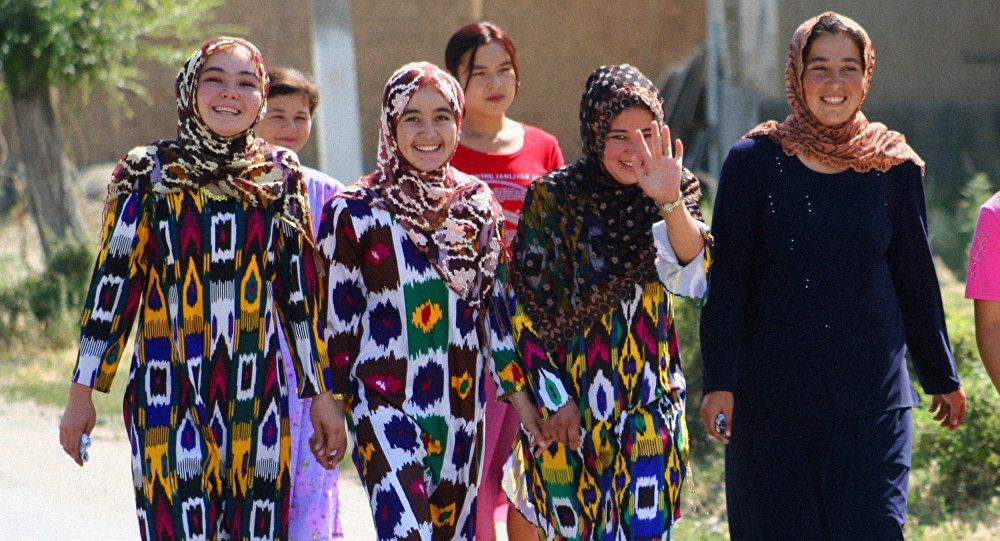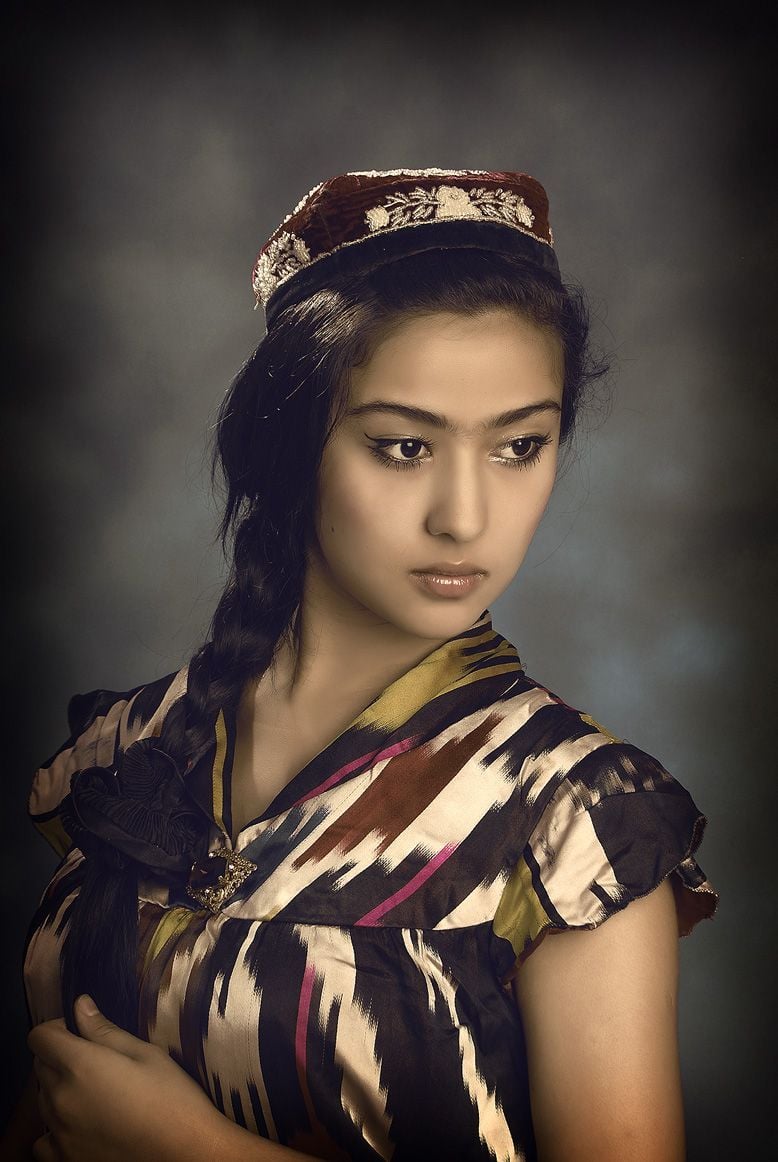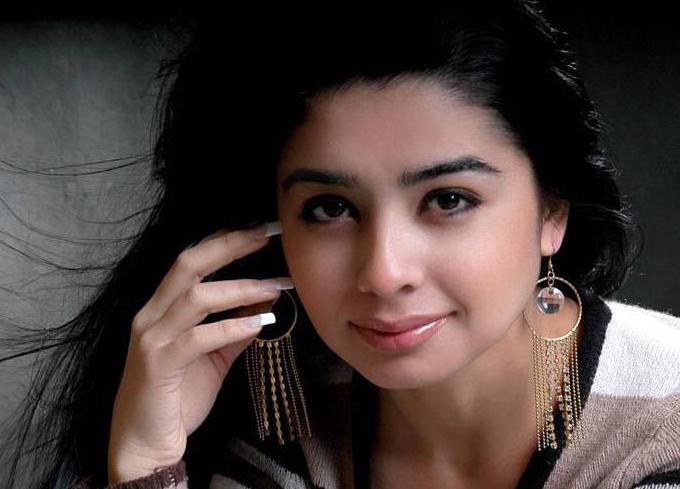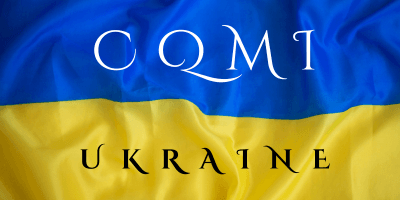Uzbek Women: Oriental Beauty, Character & Traditions | Serious Dating
Uzbek Women: Oriental Beauty, Character & Traditions | Serious Dating
Uzbek women represent one of the oldest peoples of Central Asia. With their captivating oriental beauty, sun-kissed golden skin, and mysterious eyes, they embody the charm of the Silk Road. These women combine ancient traditions with modern aspirations.
Uzbekistan, birthplace of Samarkand and Bukhara, is home to women whose beauty is as legendary as their country's history. Discover what makes Uzbek women so special: their natural elegance, world-renowned culinary talents, and exemplary family devotion.
What Makes Uzbek Women Unique
Ready to Meet a Woman from Central Asia?
Discover Our MembersUzbekistan: Jewel of the Silk Road
Uzbekistan, located in the heart of Central Asia, is a country with a thousand-year history. Land of Samarkand, Bukhara, and Khiva, this country fascinates with its exceptional architectural heritage, artisan traditions, and the legendary beauty of its women.

| Characteristic | Details |
|---|---|
| Capital | Tashkent |
| Historic Cities | Samarkand, Bukhara, Khiva |
| Dominant Religion | Sunni Islam |
| Languages | Uzbek and Russian |
| Special Feature | One of the lowest divorce rates in the world |
The Physical Appearance of Uzbek Women
Uzbek women possess a characteristic oriental beauty, shaped by the hot and sunny climate of their region. Their unique appearance combines typical features of Central Asian peoples with incomparable natural elegance.
The Influence of the Sun:
Warm sunshine, sand, and winds have shaped the beauty of Uzbek women. Practically all have a golden tanned complexion and dark hair that shines like silk. In their dark brown eyes, all the mystery of the Orient is reflected.

Distinctive Physical Traits

Clothing Style: Between Tradition and Modernity
Uzbek women are proud of their clothing heritage. Even those living in large modern cities keep many traditional garments in their wardrobes and wear them with pride in everyday life.
Traditional Uzbek Attire
Traditional costumes are spectacular: brilliant like exotic flowers or butterflies. Festive outfits delight all those who love beauty and spectacular things, with their vibrant colors and refined embroidery.
Notable fact: Modern Uzbek women, whether models or businesswomen, know how to combine Western fashion parameters with traditional elements of their culture.

The Character of Uzbek Women: Gentleness and Inner Strength
Uzbek women are recognized for their unique combination of oriental gentleness and inner strength. Their character has been forged by centuries of traditions and a culture that values family above all else.
| Character Trait | How It Manifests |
|---|---|
| Gentleness | Tender and patient character, gentle approach to relationships |
| Generosity | Give without counting for their family and loved ones |
| Modesty | Restraint and humility in their behavior |
| Devotion | Entirely dedicated to their children and home |
| Resilience | Inner strength in the face of life's difficulties |
"The main advantage of oriental beauties is a special inner beauty: sweetness of character, patience, and generosity."
Modern Uzbek Women: Brilliant and Independent
For centuries, Uzbek women lived in the shadow of their men. But modern realities have changed everything. Today, they appear in world beauty rankings: brilliant, confident, and independent.
Areas of Success
- Show business and music
- Film and television
- Modeling world
- Entrepreneurship
- International beauty contests
What Makes Them Unique
- Distinctive oriental appearance
- Elegant modesty and restraint
- Self-confidence
- Education and culture
- Natural charisma
A Beauty Lesson:
Beautiful Uzbek women participating in beauty contests demonstrate that there is no strict canon of the ideal woman. What matters is being charismatic, charming, and not doubting one's physical and inner beauty.
Uzbek Cuisine: An Art Mastered by Women
Uzbek women are recognized worldwide for their exceptional culinary talents. Uzbek cuisine, rich and flavorful, is a true heritage passed down from mother to daughter for generations.
| Traditional Dish | Description |
|---|---|
| Plov (Pilaf) | The national dish: fragrant rice with meat and vegetables |
| Shurpa | Fragrant broth with herbs and spices |
| Manti | Juicy dumplings made of dough and meat |
| Uzbek Flatbread | Traditional bread baked in tandoor oven |
| Sumalak | Traditional Nowruz dessert |
| Shashlik | Skewers flavored with smoke and spices |
Ingredients of Uzbek Cuisine
Uzbek dishes mainly use: flour, lamb meat, sheep tail fat, lots of vegetables, fresh herbs, and fragrant spices. Each dish is prepared with love and expertise.
"And all this is the merit of an Uzbek woman!"
Craftsmanship: The Creative Talent of Uzbek Women
Uzbek women, particularly in rural areas, excel in traditional decorative arts. Their creativity is expressed through skills passed down for centuries.
Embroidery
Complex traditional patterns
Carpet Weaving
Refined ancestral art
Spinning
Creating unique textiles
Decoration
Home embellishment
The products of their hands are an essential attribute of every Uzbek home, lovingly decorated with this decorative art. The sedentary lifestyle has developed a respectful attitude toward the home: courtyards and even streets are kept in incredible cleanliness.
Family Values: The Heart of Uzbek Culture
In Uzbekistan, the institution of family remains extremely strong. It is the most important value in society, which explains one of the lowest divorce rates in the world.
A Revealing Uzbek Proverb
"When you teach your son, you teach one person.
When you teach your daughter, you teach an entire family!"
This proverb perfectly illustrates the central role of the Uzbek woman in the family, as the moral and spiritual foundation of the home.
The Role of the Traditional Uzbek Wife
Challenges and Evolution of Uzbek Women
Uzbek society is undergoing significant transformation. More and more Uzbek women are working, getting educated, and aspiring to a balance between tradition and modernity.
A Society in Transition
Many Uzbek men now accept that the modern woman is not just a housewife. They share the role of family provider with women who are intelligent, active, and hard-working.
Notable evolution: Uzbek women are increasingly accessing higher education, positions of responsibility, and entrepreneurship.

Women's Rights in Uzbekistan: Progress and Challenges
The position of women in Uzbek society is evolving. In September 2019, Uzbekistan passed the Law on the Protection of Women from Oppression and Violence, marking an important step forward.
Positive Changes
- New laws protecting women
- Growing awareness of women's rights
- More women in education
- Emerging women's movements
- Changing attitudes among younger generation
Ongoing Challenges
- Traditional expectations persist
- Stereotypes in media
- Pressure on unmarried women
- Limited enforcement of new laws
- Need for continued progress
Looking Forward:
There are positive changes in society. The younger generation is ready for change and has the strength to advocate for equality. Many women now have voices and the courage to speak out about important issues.
Friendship and Social Relations in Uzbekistan
Uzbek culture places great importance on social relationships. The legendary hospitality of Uzbeks and their human warmth make them a particularly welcoming people.
Uzbek Hospitality
- Warm welcome of foreigners
- Frequent invitations to the home
- Generous sharing of meals
- Spontaneous help for visitors
Typical First Meeting Questions
- "How old are you?"
- "Are you married?"
- "Where are you from?"
- "Do you want to be my friend?"
Good to Know:
In Uzbekistan, if you are single after 25, expect compassionate looks and questions about why you are not married. Family and marriage are at the heart of Uzbek culture.
Tips for Meeting an Uzbek Woman
Modern Uzbek women are looking for a partner who will respect them and offer them a better life. Here's how to approach them successfully.
| ✅ Do | ❌ Don't |
|---|---|
| Show respect for her culture | Criticize her traditions or religion |
| Demonstrate stability and reliability | Be unstable or unpredictable |
| Appreciate her culinary talents | Ignore the importance of family |
| Be a respectful partner | Be domineering or disrespectful |
| Value her inner and outer beauty | Be superficial or pushy |
What an Uzbek Woman Is Looking For
Uzbek Women vs Other Central Asian Women
Uzbek women share certain traits with their Central Asian neighbors, but possess characteristics that distinguish them from Kazakh women or Kyrgyz women.
Uzbek Women
- Pronounced oriental beauty
- Naturally golden complexion
- Renowned culinary excellence
- Strong artisan traditions
- Silk Road heritage
Kazakh/Kyrgyz Women
- More mixed features (Slavic/Asian)
- More pronounced nomadic heritage
- More modern lifestyle
- Stronger Russian influence
- Greater geographic mobility
Discover Also
Kazakh Women – Central Asian neighbors
Kyrgyz Women – Women from Kyrgyzstan
Russian Women – Compare with women from Russia
Ukrainian Women – Discover their unique qualities
Ready to Meet Your Soulmate?
CQMI accompanies you in your search for love with a Slavic or Central Asian woman
See Women's ProfilesOver 1,800 verified women are waiting for you
Contact CQMI Agency
Phone: +1 514 794-5053 (Viber)
Email: This email address is being protected from spambots. You need JavaScript enabled to view it.
Skype: Antosha71
Social Media: Facebook and Instagram @Agencecqmi
YouTube: https://www.youtube.com/cqmica
Live Every Sunday at 2 PM Eastern Time!











